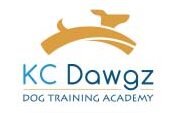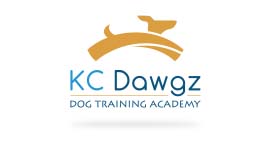When it comes to training your beloved canine companion, timing is everything. One common question that dog owners often ask is, “How old should my dog be for board and train?” The answer to this question is not one-size-fits-all, as it depends on various factors. In this comprehensive guide, we’ll explore the optimal age for starting training programs for dogs and why this timing is essential for their training journey.
Ideal Age for Board and Train
While it’s true that some training programs accept puppies as young as four months old, experts generally recommend waiting until your dog is at least six months old. There are several compelling reasons for this recommendation.
Better Retention of Training
One of the primary reasons for waiting until your dog reaches six months of age is that they have better retention of the training. Dogs at this age are more mentally receptive and can grasp commands and concepts more effectively. This means that the training they receive during board programs is likely to stick with them for a longer time, leading to more successful results.
Greater Training Progress
Dogs that start training programs at six months or older tend to make more significant progress. They are better equipped to handle complex training exercises and behavioral challenges. Their physical and mental maturity allows trainers to work with them more effectively, resulting in a well-behaved and obedient adult dog.
Emotional Maturity
Emotional maturity is a crucial factor in a dog’s ability to adapt to new environments and routines. Dogs that are at least six months old are generally more emotionally mature. They can handle the separation from their owners during the training program with less stress and anxiety. This emotional stability contributes to a more successful training experience.
Introducing Training to Puppies
While the ideal age for board and train is around six months, it’s essential to introduce training to puppies at a much younger age. Early training is a vital step in helping puppies develop into well-adjusted and well-behaved adult dogs. Here are some tips for starting early:
Begin with the Basics
Start with basic commands such as “sit,” “stay,” and “come.” These foundational commands lay the groundwork for more advanced training later on.
Use Positive Reinforcement
Positive reinforcement is key to effective training. Reward your puppy with treats and praise when they follow commands correctly. This positive association encourages them to repeat the desired behavior.
Keep Sessions Short and Fun
Puppies have short attention spans. Keep training sessions short, around five to ten minutes, and make them enjoyable. Puppies are more likely to engage and learn when they view training as a fun activity.
Socialization for Puppies
Socialization is a critical aspect of a dog’s development, and it’s essential to start early. However, the age at which puppies are ready for socialization can vary.
Varying Socialization Needs
Just like with training, socialization needs differ from one dog to another. Some puppies are naturally confident and ready to interact with other dogs and people from a young age. Others may be more reserved or cautious. It’s crucial to pay attention to your puppy’s temperament and adjust their socialization experiences accordingly.
Choosing the Right Program
When deciding on a board and train program for your dog, it’s important to note that there are various options available. Some programs offer private lessons, while others provide full-board training. You can also opt for a hybridized version that combines both.
Tailored Learning Environment
Selecting the right program means tailoring the learning environment to your dog’s specific needs and your preferences. Consult with trainers to determine the best approach for your furry friend.
Conclusion
The ideal age for enrolling your dog in a board and train program is generally around six months old. This age allows for better training retention, greater progress, and enhanced emotional maturity. However, early training and socialization are essential for puppies, and these efforts should begin well before the six-month mark.
If you’re ready to embark on a board and train journey for your dog, we encourage you to contact us. Our experts can help you choose the right program and provide guidance on when your dog is ready to start their training adventure. Remember, the key to a well-behaved and well-adjusted dog is timely and appropriate training.





